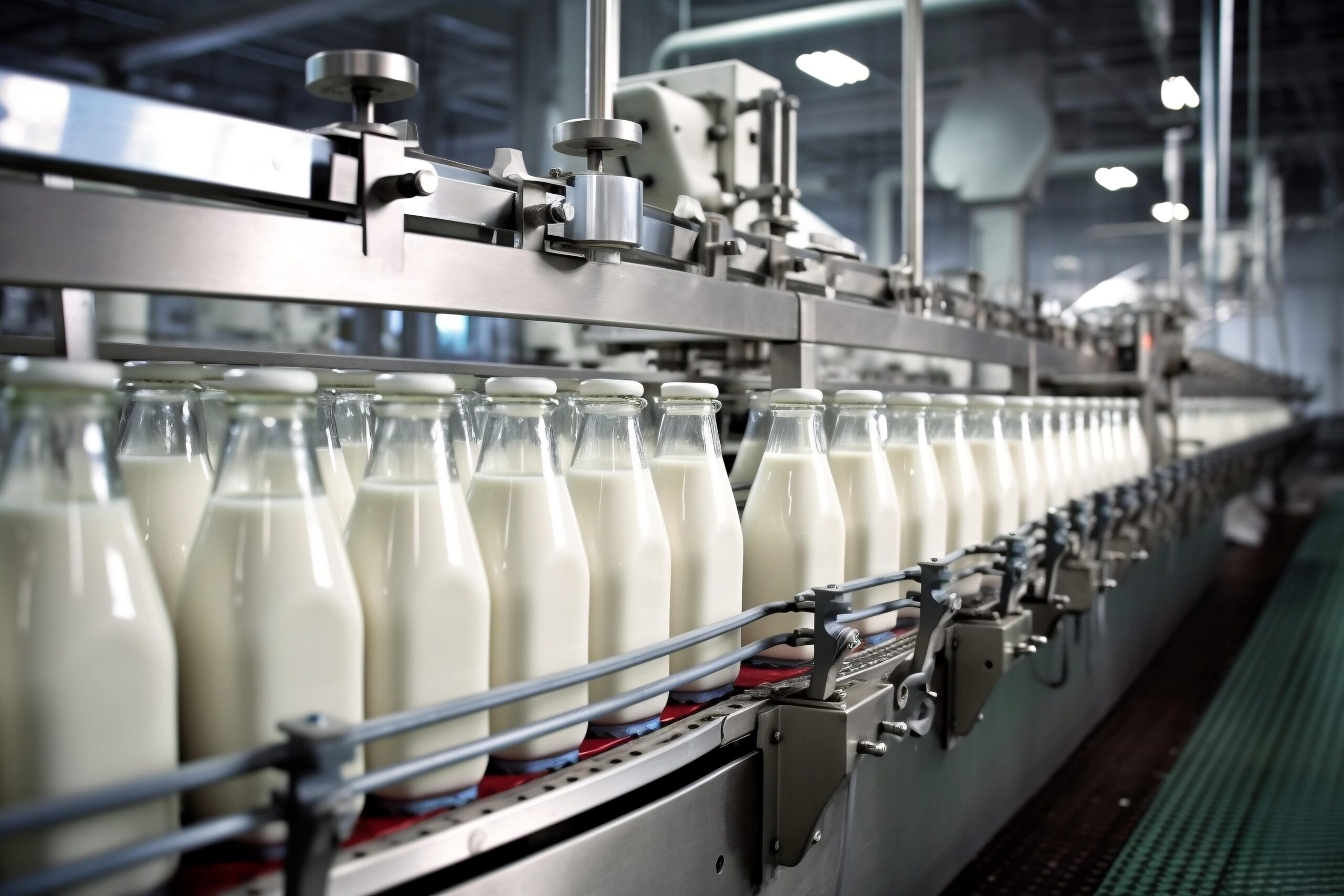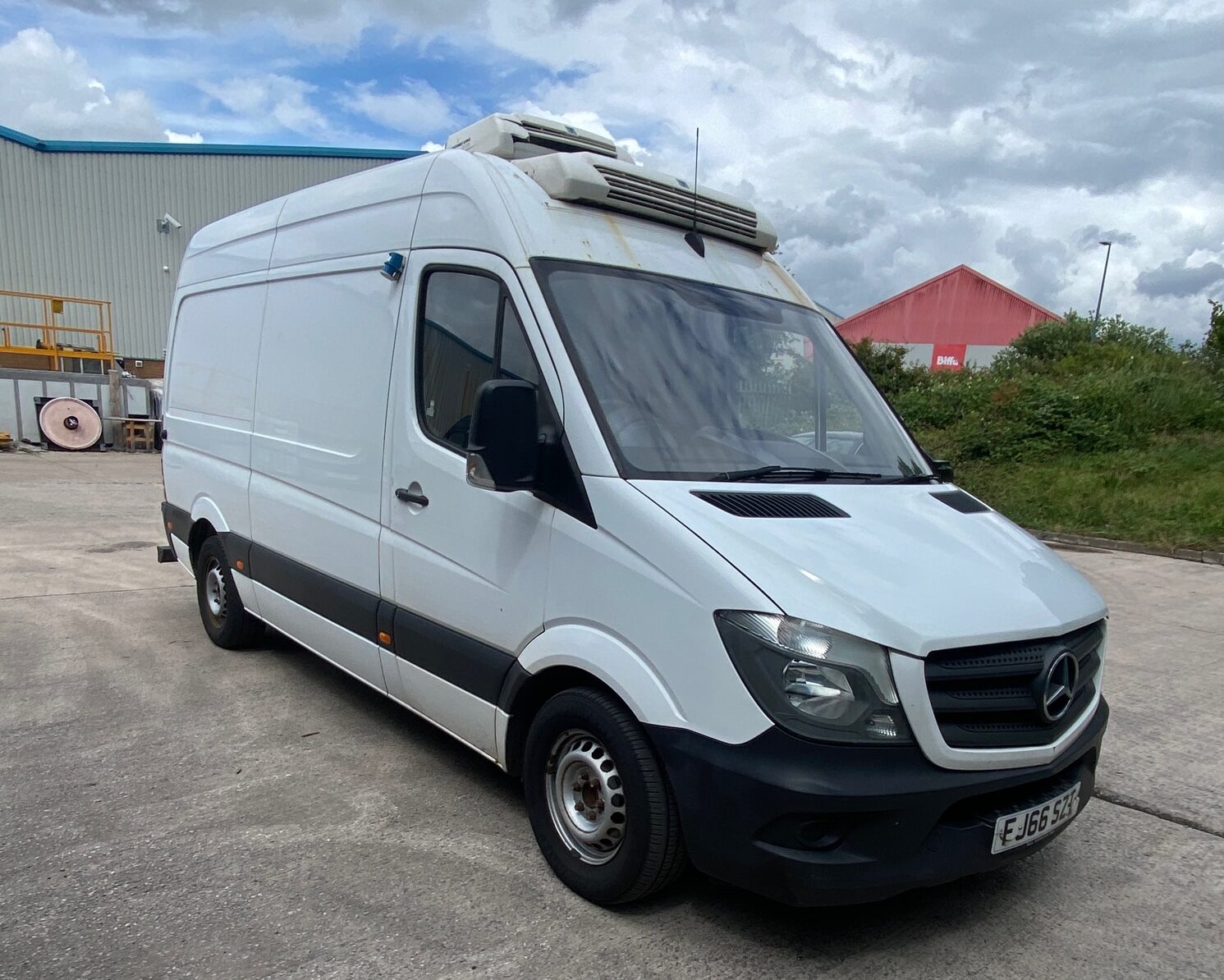The dairy industry ranks amongst one of the largest sectors within the food industry. With 12,000 active dairy farmers, the UK churns out nearly 15 billion litres of milk every year. Because of this, the dairy industry is worth nearly £9.2 billion at wholesale level.
Ranging from milk and cheese, to yoghurts and cream, the journey from the British countryside to your kitchen fridge is a vital one. With dairy products prone to perish at a much faster rate than other foods, transportation plays an important role in preserving shelf life. This blog will explore best practices, tips, and considerations for the safe transportation of dairy.
The Importance of Temperature Control for Dairy Products
As mentioned above, dairy products tend to have a much shorter shelf life than other foods such as meats and canned foods. For dairy products such as milk and yoghurt, it is vital to their condition that they be kept at a constant controlled temperature.
In the UK, this is legally below 8°C during transportation and in shops. This constant low temperature must be maintained to prevent the growth of bacteria or other foodborne pathogens. If not controlled, bacteria can cause some serious implications to health. This is particularly true for at-risk populations such as pregnant people, infants, or immunocompromised people. Furthermore, once dairy products are no longer in their optimal temperature state, bacteria can double in growth every 20 minutes. This is where the problems start.
In the context of milk, temperature control is paramount from the minute it leaves the cow. Fresh milk can be as hot as 38°C upon collection from the udders. With high temperatures comes the possibility of bacterial growth, so the process to cool the milk needs to begin quickly. The whole process of cow to shop generally needs to happen within 48 hours. Once the farmers have done their job, it is down to transport. This must ensure the final product is safely delivered. Introducing, refrigerated vans.

The Importance of Dairy Product Transportation
We already know why it is so important for dairy products to have stringent temperature control, but how is this ensured during the transportation process?
First of all, the right vehicle, equipped with the right temperature-controlling systems must be used. Refrigerated vans offer a solution, with built-in refrigeration units and temperature monitoring systems. At Cool Running Rental, our fleet of refrigerated vans comes fitted with a GAH Super Rapier SRF 21 Direct drive refrigeration unit, capable of reaching temperatures as low as -18°C. Not only this but they are also fitted with in-cab controls for the easy monitoring and adjusting of temperature from the front seat.
A well-maintained and regularly serviced van is also crucially important to the successful operation of transporting dairy produce. The last concern for delivery drivers on the road should be a vehicle breaking down. As little time as possible should be spent on transport for products such as milk due to their short shelf life. A van breaking down and possibly not receiving recovery could be the difference between reaching its destination or not. The knock-on effect is money lost for shops, delivery drivers, and the farmers that produce the milk. Having a plan in place for emergencies such as a breakdown or delayed traffic will help reduce wastage and loss of profit. At Cool Running Rental, all our refrigerated vans are professionally serviced. We also provide 24-hour customer support to make sure you get the support you need, nationwide.
Following hygiene practices is essential to the safe transport of dairy. Maintaining a clean and sanitary refrigerated van is a must. Before every journey, measures must be taken to sanitise the vehicle and any handling areas for produce. Delivery drivers should be trained in proper hygiene practices, including handwashing procedures and the use of protective clothing.
Also before every journey, delivery drivers should pre-plan their route, checking for any possible diversions or traffic build-up. Optimising the delivery route helps to minimise travel time to ensure prompt delivery. Liaising with customers and/or companies about scheduled delivery times will also benefit the safe transport of dairy products. This allows everyone to be aligned with their receiving capabilities. Read more about the benefits of preparing your van before your journey, particularly in the warmer months, with our blog ‘How to keep your refrigerated van cold in the summer’.

What to Consider When Transporting Dairy Products
Finally, some factors to consider for the dairy products themselves include packaging. It is essential proper packaging is used to protect the dairy products from any physical damage during transit. Maintaining the quality and integrity of dairy products is vital for their consumption. Food-grade packaging materials should always be used.
Careful and correct handling and loading of dairy products will also help in minimising any product damage. Guidelines on stacking and securing products during transit should be carefully followed, preventing any shifting or falling of products.
You can read more about our tips for transporting food at safe temperatures in our blog post ‘Transporting Food at a Safe Temperature’.
Transport within the dairy industry can require lots of careful planning and procedures to ensure safety and quality are maintained. The most reliable method of transport uses refrigerated vans travelling up and down the country, providing you with fresh produce every day.
If you or your business needs refrigerated vans with nationwide coverage, 24-hour customer support, and fully serviced and flexible leasing options, Cool Running Rental can become your trusted partner. With a variety of models and styles of refrigerated vans, we are guaranteed to have the van for you. Our team provides expertise within the food transportation industry to both big and small companies.
If you would like to find out more about our services and fleet of refrigerated vans, get in touch with us to arrange a free quote with our team today.




